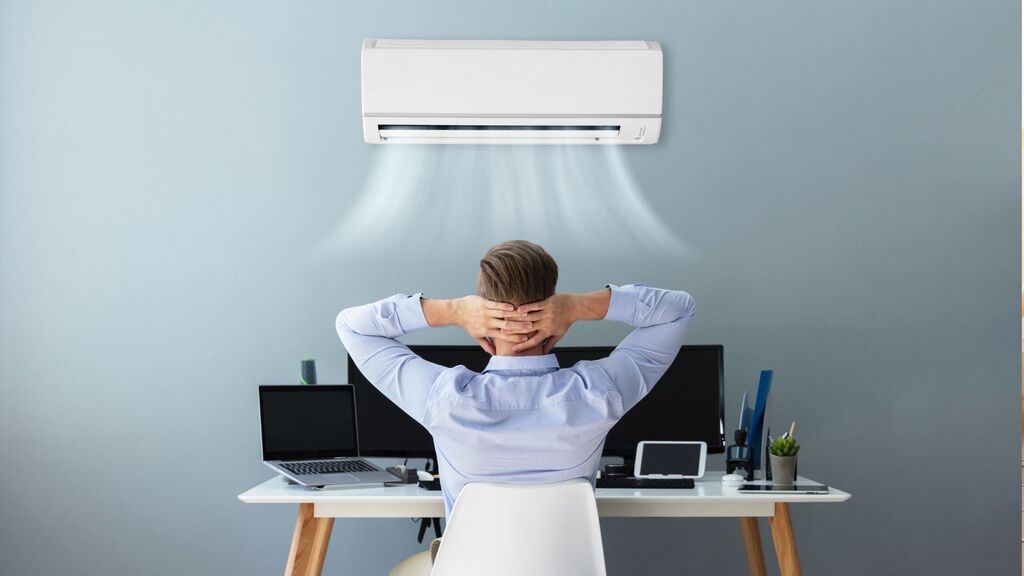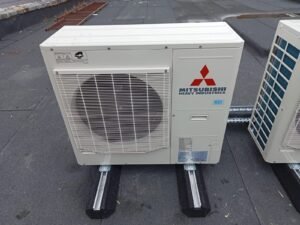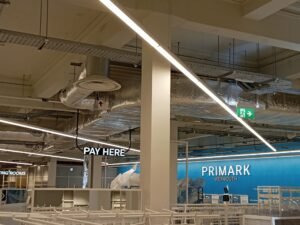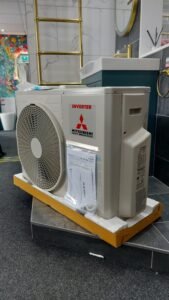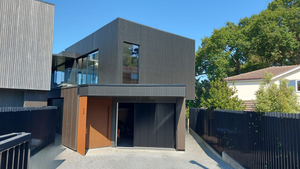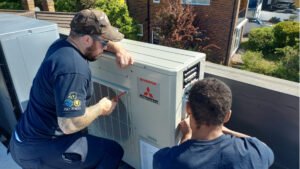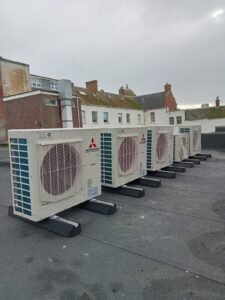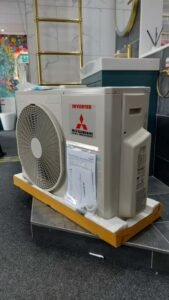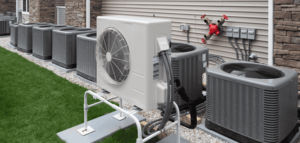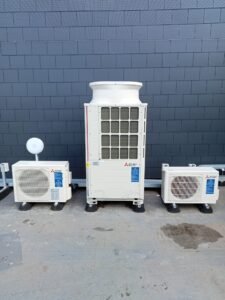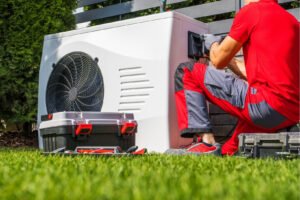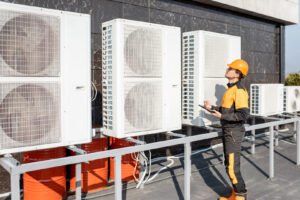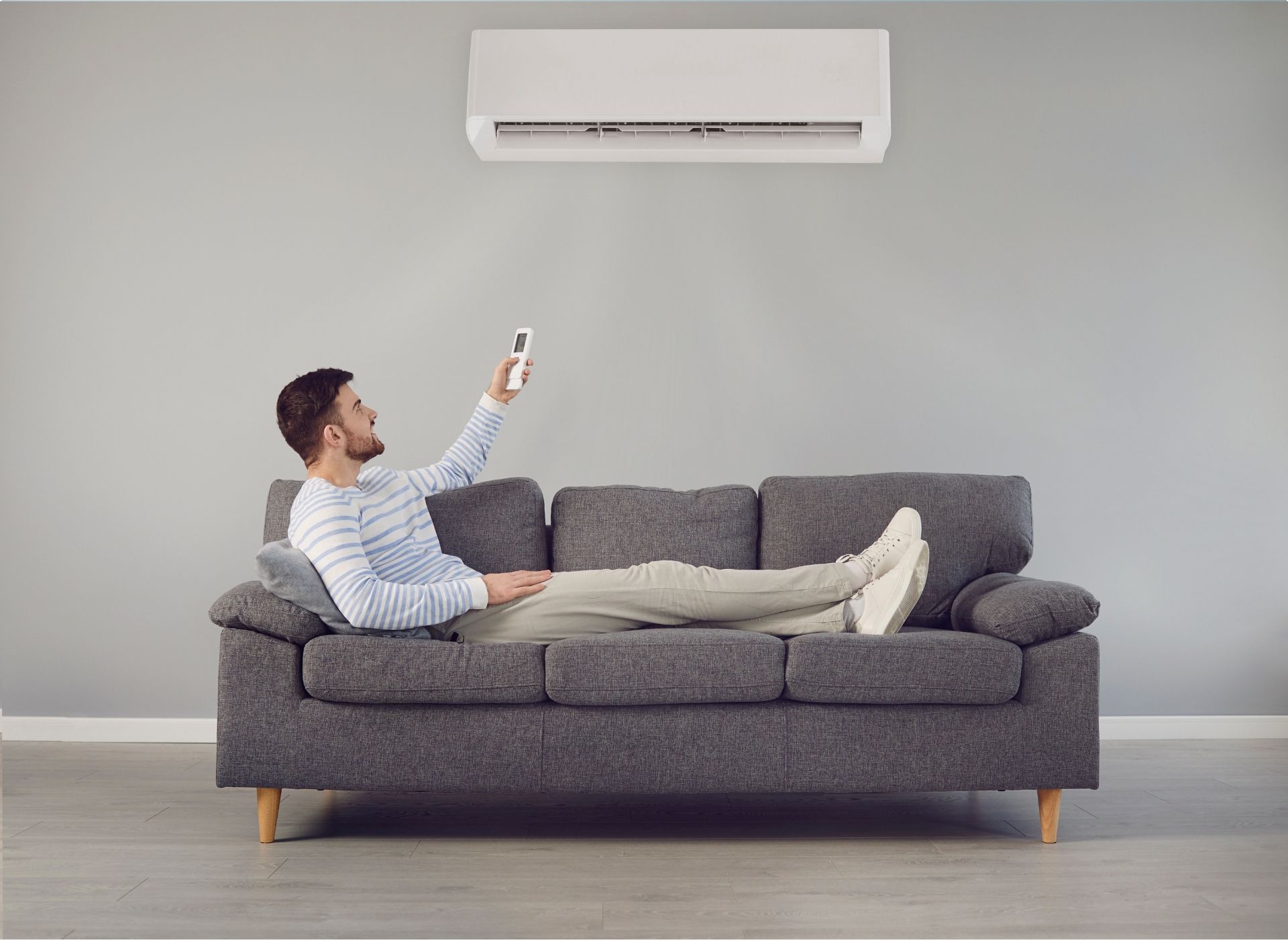
Why Best Air Conditioning Dorset is a Necessary For Homes and Offices in 2025?
The sweltering summer days in Dorset have reached unprecedented levels in recent years, with the county often making headlines for its soaring temperatures during heatwaves. Once considered a rare occurrence, extreme heat has become a recurring challenge for Dorset residents and businesses alike. As climate change continues to reshape weather patterns, air conditioning Dorset and ventilation systems Dorset are no longer an indulgence but a necessity in creating comfortable and sustainable living and working environments.
This blog explores the historical progression of heatwaves in Dorset, the alarming trends in their intensity and frequency, and the practical challenges they pose to both homes and businesses.
The Evolution of Dorset’s Heatwaves
A Look Back at Dorset’s Heat Trends
Dorset has always enjoyed its reputation as a picturesque coastal region, well-loved for its moderate climate. However, the summer of 1976 marked the beginning of more extreme heat conditions for the area. That year went down in history as one of the UK’s hottest and driest, with Dorset recording prolonged heat spells, parched landscapes, and significant disruption to daily life. Local archives recount temperatures in Dorchester reaching a record 34.7°C, while the River Allen completely ran dry. Some 50,000 trees burned in fires, providing a stark warning of what could happen as natural balance tipped under severe heat stress.
Fast-forward to the 21st century, and heatwaves are no longer the anomalies they once were. By 2022, Dorset witnessed three distinct heatwave events in just one summer, marking some of the hottest days on record. Bournemouth and Poole both experienced temperatures exceeding 32°C, and for the first time, night-time lows failed to offer reprieve, lingering above 22°C on multiple occasions. These tropical nights signal a shift, making it harder for homes and offices to cool naturally after the day’s heat.
The Met Office has flagged significant temperature increases in Dorset over the last few decades, with forecasts now predicting an additional rise of 1.5°C to 4°C by the middle of this century. Coastal settlements like Weymouth and Bridport may bear the brunt of worsening conditions, with longer, drier summers and a surge in “yellow alert” warnings issued nearly every year.
The Growing Frequency and Intensity
Heatwaves are not just hotter than before; they are also lasting longer and arriving more frequently. According to climate action reports by Dorset Council, the region experienced only a handful of exceptionally hot days per year in the early 2000s. Now, heatwaves can extend from three days to over a week. Worst yet, climate models predict that Dorset could face up to 15 days of intense heatwaves annually by 2030.
Urban areas like Bournemouth and Poole suffer the worst of these conditions due to the heat island effect. This phenomenon occurs when closely packed buildings and paved surfaces trap heat, creating hotspots that exacerbate already high temperatures. Meanwhile, countryside homes with ageing infrastructure struggle to stay cool, as traditional construction materials fail to insulate against sustained heat.
Night-time cooling, a natural remedy for daytime heat, is similarly diminishing. These sleepless tropical nights are spurring property owners across Dorset to evaluate their cooling solutions. Many are turning to air conditioning Dorset systems and advanced ventilation systems Dorset to reduce health risks and restore comfort.
Recorded Impacts on the Economy and Community
Dorset’s hospitality and residential property sectors are prime casualties of these warming trends. Blessed with some of the most visited seaside areas in the UK, towns like Bournemouth and Weymouth have long depended on summer tourism revenue. Yet, extreme heat discourages foot traffic, reducing the numbers of visitors during peak periods. For those who do arrive, sweltering accommodation fails to deliver on comfort expectations. This impacts customer satisfaction and results in fewer repeat visits.
Public Health Dorset reports an alarming rise in heat-related illnesses, including heatstroke and dehydration, particularly amongst the elderly and children. Heat stress hospitalization rates increased by 12% in Dorset towns such as Wareham and Dorchester between 2019 and 2024. For people living in properties without modern ventilation systems Dorset, the heat can turn dangerous very quickly, especially for vulnerable demographics.
Even essential infrastructure is struggling to cope. Emergency responders report surges in callouts to deal with fires sparked by tinder-dry grasslands, while older buildings endure damage to roofing, paint, and electronics as indoor temperatures hit new highs.
Challenges Heatwaves Pose to Dorset Properties
Residential Challenges
Heatwaves make everyday home life in Dorset increasingly difficult. Poorly ventilated homes become heat traps during sweltering stretches, compounding discomfort and reducing overall air quality. Many coastal properties, built in previous decades before climate change impacts were fully understood, lack the insulation and cooling infrastructure needed to address modern heat requirements.
Key residential challenges include:
- Poor Humidity Control
High temperatures combined with inadequate air circulation create ideal conditions for mould growth, particularly in bathrooms, basements, and other moisture-prone areas.
- Lack of Sleep
Hot nights disrupt sleep cycles, causing lethargy and irritability during daytime hours. This is especially impactful on families with young children or elderly members, who are less able to adapt to rising indoor temperatures.
- Thermal Stress on Materials
Homes with south-facing windows often experience overheating, which can damage wood flooring, furniture, and even electronics that cannot operate at sustained high temperatures.
- Health Concerns
Chronic exposure to excessive heat can trigger respiratory problems, dehydration, and cardiovascular stress. For many, upgrading to an energy-efficient air conditioning Dorset system is now a vital safeguard against these health risks.
Business Challenges
Commercial properties, ranging from retail shops to community offices, face mounting issues as a result of Dorset’s extreme summer weather. Beyond the physical discomfort for employees and visitors, the economic implications grow direr with each passing year.
Key business challenges include:
- Productivity Interruptions
Heatwaves sap worker efficiency, with studies showing that productivity drops by as much as 5% for every degree above 23°C indoors. Offices lacking air conditioning Dorset solutions often see a rise in sick leave and lackluster morale during heat episodes.
- Customer Deterrence
Shopping centres, cafes, and other customer-facing spaces report a slump in revenue on the hottest days of the summer. Lack of air-cooled interiors reduces customer dwell time, directly impacting sales and service satisfaction.
- Rising Operating Costs
Businesses that rely on outdated cooling systems often face steep electricity bills as they struggle to maintain interior comfort. This is compounded by Dorset’s high energy rates. Switching to modern energy-efficient air conditioning Dorset technology not only enhances performance but brings monumental utility savings, too.
- Stock Protection
For businesses handling perishable goods, electronics, or temperature-sensitive inventory, failing to ensure effective cooling can lead to costly stock losses.
Increasing Demand for Sustainable Solutions
The good news is that advancements in cooling technologies are helping Dorset communities meet these surging demands. Sustainable cooling options such as solar-powered air conditioning systems and smart ventilation controls are gaining popularity amongst eco-conscious property owners. Not only do these systems align with Dorset’s environmental values, but they also deliver measurable cost savings over time.
By investing in advanced technologies, residents and business owners simultaneously future-proof their properties while contributing to Dorset’s broader sustainability objectives. Key solutions like ventilation systems Dorset, equipped with sensitive air-quality monitors and thermal sensors, are paving the way for comfortable and healthy indoor spaces year-round.
A Glimpse at What’s Next
With Dorset’s climate set to shift further in the coming decades, the adoption of air conditioning Dorset and ventilation systems Dorset solutions will play a pivotal role in maintaining cool, liveable spaces. But how exactly can these systems revolutionise daily life for residential and commercial properties?
The second part of this blog will examine breakthrough cooling technologies, explore actionable strategies to control energy consumption during heatwaves, and highlight impressive case studies featuring Dorset homes and businesses. From eco-conscious cooling systems to cost-saving innovations, we’ll uncover why the only way forward is by creating resilient indoor environments that support both comfort and sustainability.
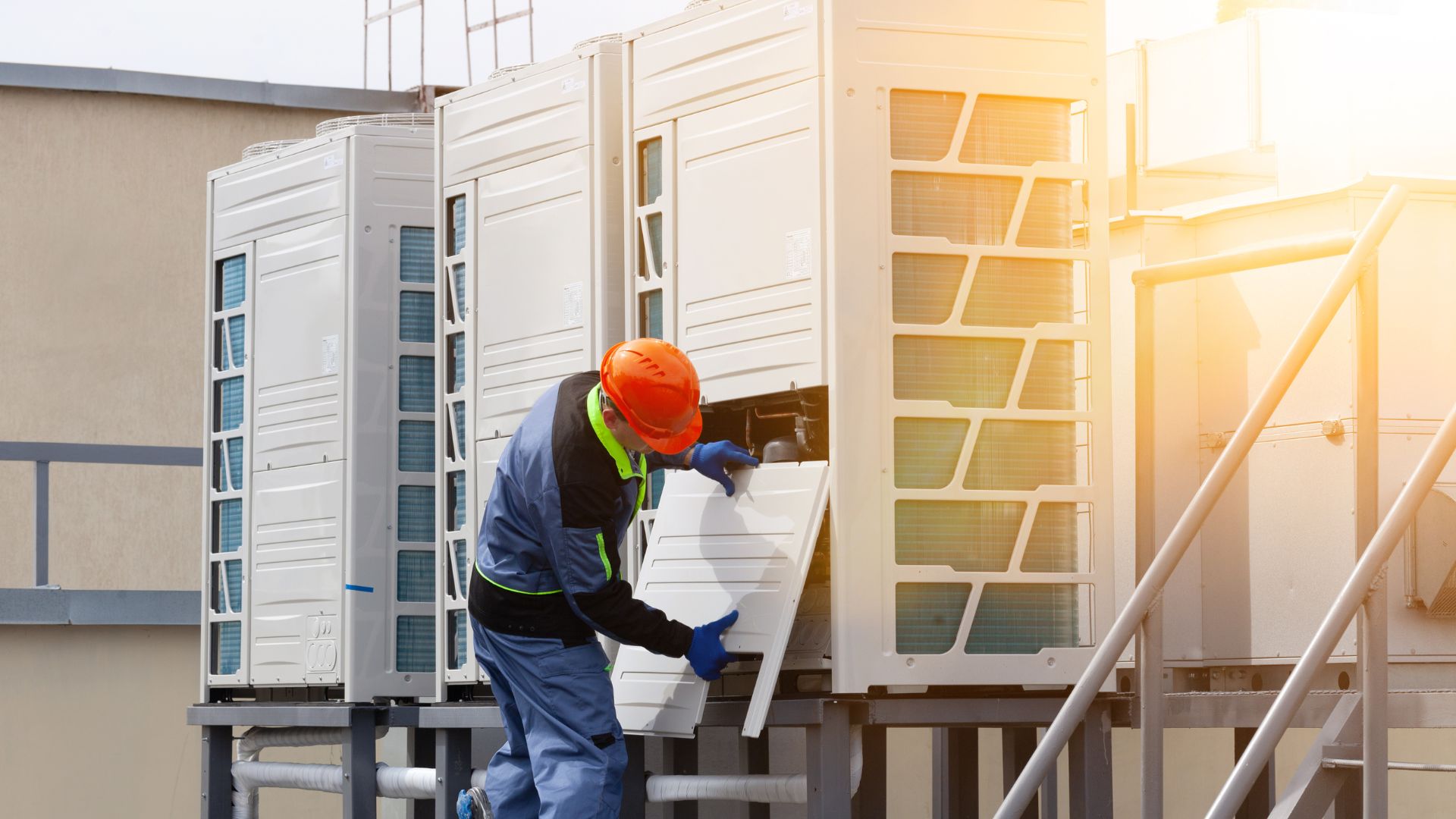
Advanced Cooling Solutions and Real-Life Outcomes in Dorset
Picking up from our discussion on the increasing intensity of Dorset’s heatwaves, this section dives into practical solutions that can mitigate their impact. Modern air conditioning Dorset systems and ventilation systems Dorset are leading the charge in offering smarter, more efficient ways to control indoor climates. This part will also highlight cost-saving strategies and case studies to illustrate how some Dorset property owners have successfully adapted to these changing climatic conditions.
Advanced Cooling Technologies for Dorset Properties
The rise in heatwaves has driven innovation in cooling technologies, offering residents and businesses a wide range of advanced options. These systems do more than just cool the air; they are designed to enhance energy efficiency, improve air quality, and address the challenges posed by climate change.
1. High-Efficiency Air Conditioning Units
Modern air conditioning Dorset systems are a far cry from their older, energy-draining counterparts. Equipped with advanced features, they cater to both performance and sustainability.
- Variable Speed Compressors
These compressors automatically adjust their speed to match cooling demands, which reduces unnecessary energy use. They maintain consistent indoor temperatures without constant on-off cycling, saving electricity and improving comfort.
- Smart Thermostats
Integrating artificial intelligence, smart thermostats learn your cooling preferences and automatically tweak settings to optimise energy consumption. They can also be accessed remotely via mobile apps, offering complete convenience.
- Eco-Friendly Refrigerants
Unlike older models that rely on environmentally harmful refrigerants, the latest systems use low-GWP (Global Warming Potential) alternatives. These refrigerants significantly reduce the carbon footprint of cooling technology.
- Zonal Cooling Capabilities
For homes or businesses with multiple rooms or zones, these systems allow users to customise temperatures for each area, targeting cooling where it’s needed most.
2. Smart Ventilation Systems
Ventilation systems Dorset have advanced considerably in recent years, with smart technologies enhancing both functionality and efficiency.
- Heat Recovery Ventilation (HRV)
HRV systems extract stale air and replace it with fresh outdoor air, capturing up to 90% of the outgoing heat in the process. This ensures continuous airflow without wasting energy.
- Dehumidification Features
High humidity levels can make indoor spaces feel warmer than they are. Smart ventilation systems not only maintain airflow but also balance humidity, preventing the discomfort and health risks associated with damp environments.
- Air Filtration Systems
With built-in HEPA or carbon filters, these systems trap airborne pollutants, allergens, and microbes, ensuring healthier air quality—especially beneficial for those with asthma or allergies.
3. Solar-Powered Air Conditioning
Many Dorset property owners are turning to solar panels Dorset as the perfect complement to cooling systems. Solar-powered air conditioning provides a renewable, cost-efficient way to cool buildings, particularly during summer when sunlight is abundant.
- Energy Independence
Solar-powered systems reduce reliance on the electricity grid, cutting energy bills and protecting property owners from future price hikes.
- Battery Storage
Pairing solar panels with battery systems stores excess energy for use during the night or cloudy periods, ensuring uninterrupted cooling.
- Government Incentives
Programs like the Smart Export Guarantee allow property owners to sell unused solar energy back to the grid, further enhancing the financial returns of this investment.
4. Multi-Purpose Heat Pumps
Heat pumps are a versatile solution, providing both heating in winter and cooling in summer. They offer supreme energy efficiency and are highly compatible with other sustainable technologies like solar panels Dorset.
- Environmental Advantages
By utilising heat exchange processes rather than burning fuels, heat pumps contribute substantially lower emissions.
- Cost Savings
Since they operate on electricity, heat pumps reduce utility bills while delivering year-round comfort.
Cost-Saving Strategies for Cooling Solutions
While the initial investment in advanced cooling technologies can seem steep, the long-term savings make it a worthwhile expenditure. Here are some strategies Dorset property owners can adopt to maximise their cost efficiency.
1. Optimise Energy Usage
- Scheduled Cooling
Set programmable thermostats to keep cooling systems idle during off-peak hours or when spaces are unoccupied.
- Thermal Insulation
Simple measures like insulated windows, reflective roofing, and shading can reduce heat absorption and, consequently, cooling demand.
- Regular Maintenance
Routine servicing ensures that air conditioning Dorset systems operate at peak efficiency, preventing costly breakdowns or energy waste caused by wear and tear.
2. Leverage Renewable Energy
Combining cooling technologies with renewable power sources offers significant cost benefits.
- Solar Integration
During peak summer months, solar-powered cooling can achieve net-zero operational costs. Property owners with solar panels Dorset will find this pairing especially advantageous.
- Government Schemes
Take advantage of government incentives that subsidise the installation of renewable energy systems to offset upfront costs.
3. Explore Flexible Financing
Many service providers, including 2Brothers, offer tailored financing solutions to make advanced cooling technologies accessible to a broader audience. Property owners can upgrade without worrying about large upfront payments, making it easier to transition to modern systems.
The Path Forward
The intensity of Dorset’s heatwaves shows no sign of slowing, making it crucial for property owners to adapt. Whether it’s installing advanced air conditioning Dorset systems or upgrading to smart ventilation systems Dorset, every step toward resilient cooling is a step toward healthier, more sustainable living and working spaces.
To explore solutions tailored for your property, consult expert providers like 2Brothers, who specialise in cutting-edge cooling technology and comprehensive support. With their help, Dorset can stay cool even amid unstoppable heatwaves.
Have a question or feedback?
Whether you need electrical and mechanical help, air conditioning or refrigeration installation services, we’re here to help.
Fill in your details, and one of our consultants will get back to you shortly. We look forward to hearing from you and discussing how 2Brothers can meet your needs.
